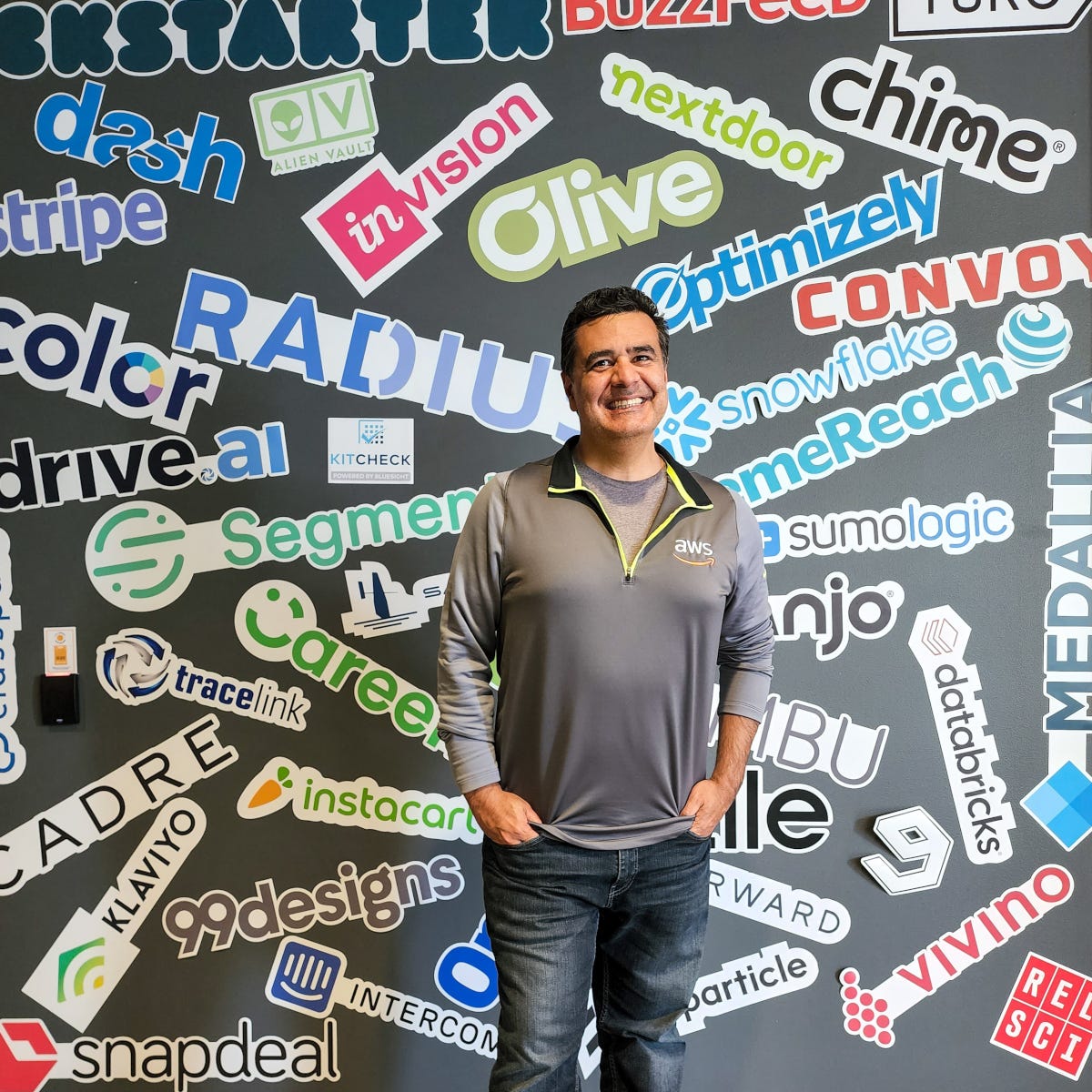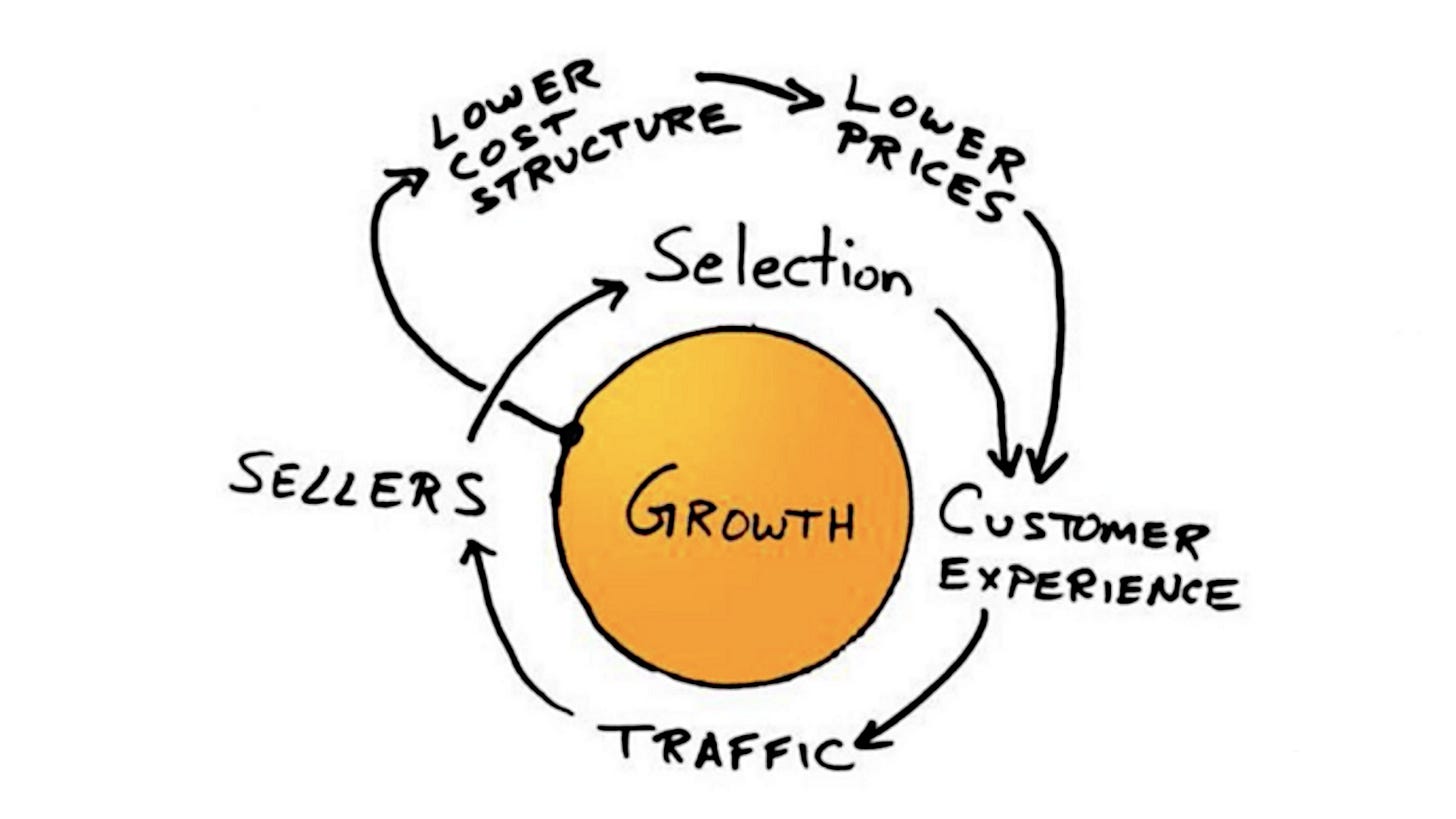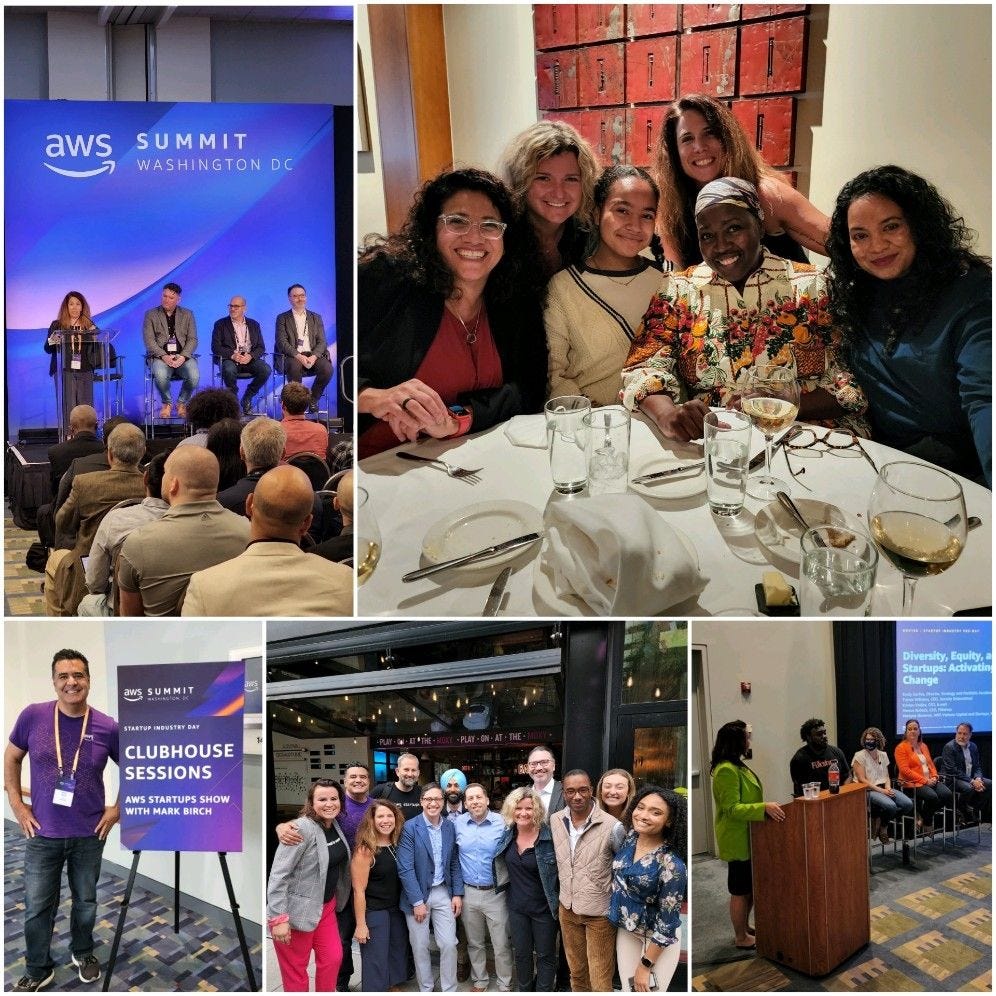Two Years at Amazon
Five cultural insights I have learned that make Amazon tick
Every company you join comes with its own culture and language. The longer a company has been around and the bigger it gets, the more embedded the culture becomes to the company and its employees. You begin to adopt the customs and language as your own.
I had never heard the phrase “dogs not barking” prior to joining AWS. It means to keep a watch for things that could be potential problems later. Maybe you are familiar with the phrase, but having lived in the startup world for the past decade, the phrase was completely new to me.
Before I joined AWS two years ago, I had different plans. My goal was to join a startup or launch my own. Based on a friendly recommendation though, I took a chance, got offered the role, and started my Day 1 on May 18th of 2020 as a Startup Advocate.
Amazon gets a fair amount of attention for having a “peculiar” culture. I do not think of Amazon’s culture as any more or less peculiar as other companies. What is remarkable though is just how ingrained, pervasive, and vital the culture is to everything that Amazon does, from operations to product development to people management.
We have a whole dictionary of Amazonian phrases. Some are generic like “dogs not barking” or doing “Start, Stop, Continue” sessions, some are very Amazonian like PRFAQ’s and “Day 1”, and some were Amazonian initially, but quickly were adopted elsewhere like “two-pizza” teams and our culture around written narratives..
Language is the connective tissue of a culture. This becomes even more critical in a company as large and global as Amazon that continues to grow at a breakneck pace. When everything is moving a thousand miles an hour, language is the glue that binds our vast organization together and ensures we are aligned on our mission and goals.
I knew how crucial language and culture are to companies, but it never felt as real until I spent enough time in AWS. When you reach the two year mark in a company, it is a significant career inflection point. Ninety days in, you do not grasp the nuances of the culture. A year gives you more perspective, but you are only just beginning to understand how things work.
The two year mark gives you a full lifecycle of how the organization operates. You would have gone through the annual planning process, participated in hiring loops, submitted narratives for doc reads, maybe even switched teams or went through a promotion cycle. You begin to see the dots connect over enough time to paint the picture in your mind of how things really happen.
So what I have learned over the past two years that I have been at Amazon? I shared some thoughts at my one year mark, but the expanse of time, experience, and relationships has given me insights into five deeper and more profound truths about how Amazon operates:
Speed over deliberation
Ideation over perfection
Data before scale
Flywheels over force
Adaptability above all
I share these not only because it provides me perspective on my career journey, but also because these insights can hopefully provide a lens on how other organizations can begin to understand and adopt these ideas into their own culture. Let me explain each of these five insights in more detail.
Speed over deliberation
Companies achieve scale because over many years and iterations, they discover a winning formula that creates a long-term, sustainable business model. This formula gets refined and codified as processes that then propagate across the entire organization. Processes enable repeatability and predictability which allow a company to quickly expand.
Overreliance on process however eventually becomes a drag on decision making. More energy is spent adhering to the process than in serving customers or innovating on behalf of customers.
Jeff Bezos stated as much, saying, “Do we own the process or does the process own us?”
Speed matters in business. As large as Amazon is, we often err on the side of going fast over deliberating endlessly. The reality is that there is never enough data to be completely 100% certain of a decision and its outcome. Bezos even noted this in his 2016 shareholder letter:
“Most decisions should probably be made with somewhere around 70 percent of the information you wish you had. If you wait for 90 percent, in most cases, you’re probably being slow.”
When a team is on the fence about a decision, we rely upon our bias for action and sense of ownership to make the call even when faced with ambiguity.
Ideation over perfection
It is hard to innovate if you are not taking chances. We are scared by ambiguity, but the reality is most decisions we make are “two-way doors”, to pull from the Amazon dictionary. This means we can always walk back a decision if the initial path did not work out.
Some highly acclaimed businesses at Amazon did not seem like winners initially. Amazon Prime was predicted to be a disaster based on financial projections. AWS was pegged to top out as no more than a $4 billion business.
We also have a culture that celebrates failure, as we share in our Hall of Failure. Without that willingness to think big and take risks, it is hard to truly bring to life the types of bold ideas that can revolutionize industries like AWS did for cloud computing.
Ingrained within Amazon is the focus to invent and simplify. This means however that we accept the upside and the downside, because we know that it takes iterations to find the right path, as Bezos elegantly shares:
"If you double the number of experiments you do per year, you're going to double your inventiveness."
Data before scale
Many people refer to Amazon as a data-driven company. This is true and we are rigorous about capturing metrics that can demonstrate how a service or program is delivering results. This is true even when making decisions that are based on a gut call.
“Those kinds of decisions, they cannot be made analytically, so far as I know. They have to be made with gut.”
Experiments help to take decisions from educated hunch to potential scalable programs. The experimental stage is often executed with few people, or as I called them“one-pizza teams”, that can make decisions much faster, can run autonomously, and have few dependencies.
If the collected and analyzed data show promising results, then and only then is it ready to scale with a “two-pizza team”. This is the largest a team should be to execute and support a service or program without needing to further decouple it further. Everything is encapsulated in the team itself without rigid dependencies on other teams.
Some experiments do not work, as would be expected. Using data however gives clarity into the decision making process on what initiatives are worth investing further resources. This is what ultimately led Amazon to shut down the Fire Phone after only 12 months after release. Being data-driven protects organizations from prematurely scaling before the market has shown indications of potential opportunities.
Flywheels over forcing functions
Much has been said of the Amazon Flywheel, which emphasizes low prices, huge selection, and great customer experience. Any great business however can be modeled on flywheel concept, where a few key business levers enable the business to propel itself.
The core of any successful flywheel however is the customer. Bezos has often said, “Determine what your customers need, and work backwards.” That is how you begin to understand what motivates customers from their point of view and what to invent to address their needs.
However many businesses, whether enterprises or startups, will start with the idea and try to invent a market. Applying force to move a market never works. There is a graveyard overflowing with failed products and shuttered startups taking this approach.
Creating that flywheel however is not an straightforward or obvious journey. It took Bezos seven years after the founding of Amazon to sketch his famous Amazon Flywheel on a napkin. In a world that gravitates to instant gratification, shortcuts, and exponential growth schemes, it is often best to have a long-term perspective and trust the process.
Adaptability above all
With massive scale comes inevitable change. During my two years in AWS, I have seen many people come and go. Sometimes this leads to shifts in strategic direction, changes in tactics, or even a complete shift in teams and reporting lines.
It is a testament to the strength of the Amazon culture though that even with constant change, the company does not miss a beat. AWS is the most obvious example where the pandemic launched a huge ramp up of digital transformation initiatives and massive uptick in startup activity fueled by record VC funding. Through all of this, AWS still managed to launch more features than ever before while nearly doubling revenue.
Adaptability is not just about survival. It is a career skill that allows you to adopt a growth mindset, to learn and be curious, and to dive deep when needed. If I look back on the prior two years, I realize that I have accelerated my learning in ways that would not have been possible if in a less dynamic environment.
Within Amazon, change and growth means there are numerous opportunities to explore. In most established companies, things tend to move much slower and fewer opportunities for all reasons mentioned previously. There are approvals to secure, organizational silos to cross, tribal knowledge to unlock, political chasms to navigate, and an unsympathetic bureaucracy to surmount, all driven by a morass of policies and processes.
The flywheel of a company begins to slow and eventually stops when speed and ideation on behalf of the customer stop being a priority. Instead of engineering continuous customer delight, the organization is engineering quarterly financial projections. When a company puts processes over its customers and people, they have become Day 2, as Bezos famously put it:
“Day 2 is stasis. Followed by irrelevance. Followed by excruciating, painful decline.”
I am going to go full on Amazonian and say I am looking forward to many more “Day 1’s” ahead. I have already celebrated 740 “Day 1’s” so far with many awesome colleagues that have pushed and stretched me along the way to achieve the highest standards. When you have a company that is aligned from top to bottom on vision and culture, it becomes unstoppable and I am glad to be on the inside experiencing the ride.
Thinking on the five points above, what resonates with you and how your company operates today? Where does your company put more emphasis, on the process or the people?
I took a short break from the newsletter as I had a crazy month of intense travel and event participation. I bounced from San Francisco to Singapore to Berlin to Atlanta to Washington DC until landing back in New York! That being said, it was a marvelous journey around the globe to meet with startups, connect with colleagues, and learn about what is going in the world of cloud computing.
My break from the road is a short one though. I am heading to San Francisco to give a talk at our AWS Startup Loft with Thursday at 10:30 PM PDT in person to present on how founders can learn to sell before they hire their first sales reps. You can sign up here if you are in San Francisco and want to attend! Then I return the following week to San Francisco and Los Angeles for customer meetings.
Later on this summer, I will be in Asia from July 22 to Angust 28. I will be based in Bangkok, but spending time in Singapore, Sydney, and elsewhere for various AWS events and customer gatherings. Let me know if you have something going on or want to meet up along the way!
Lastly, I am still running my AWS Startup Show, and had an awesome series of shows that I hosted at the Startup Industry Day for the AWS Public Sector summit in DC and a ongoing series focused on GovTech startups that you should check out.
Thanks as always for reading, sharing, and tuning in when I send these essays!
Want to learn more about DEVBIZOPS and read more hot takes about IT, technology, and working smarter. Receive our weekly newsletter by signing up to our Substack!







I enjoyed this entry very much. I will check out the hosted shows. Very interested in listening to the "How AI can improve the patient experience" and others in the "GovTech startups" entries.
I love your insights about the five "truths."
As an AWS Partner, I can also say that we emphasize the people than the process.